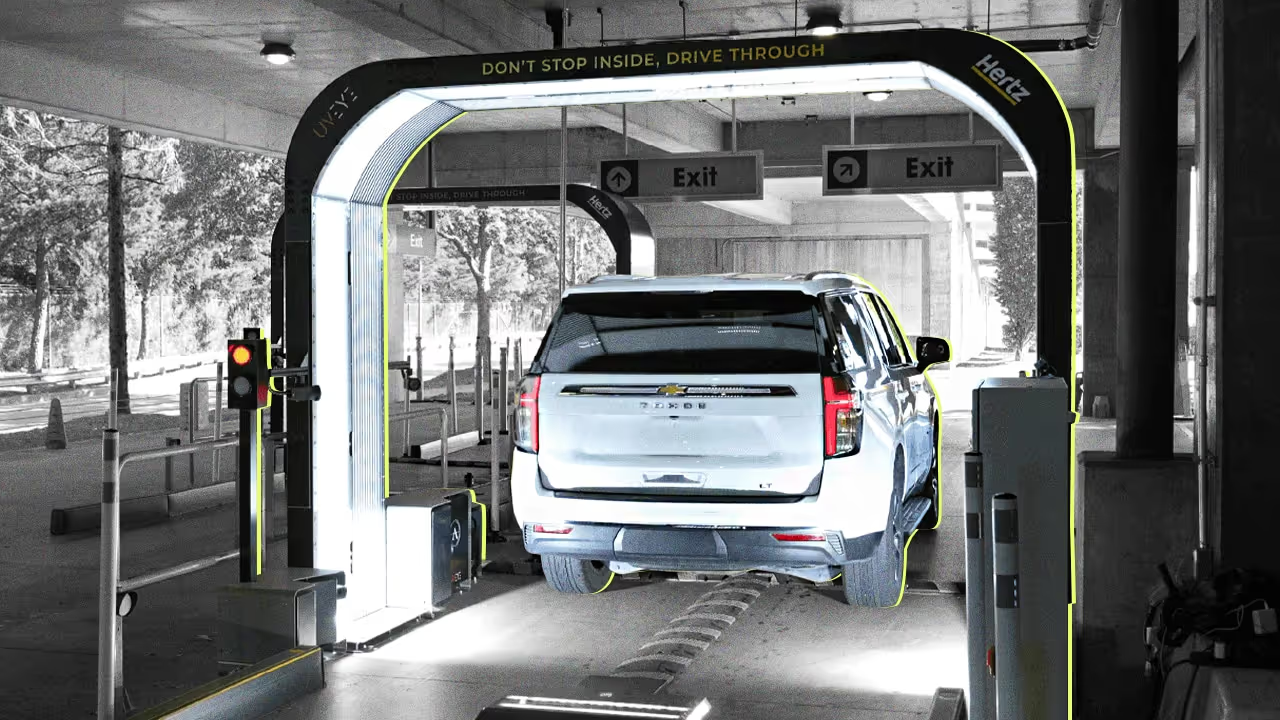
Credit: uveye.com
Hertz bets on AI for vehicle inspections, but will customers pay the price?
Key points
- Hertz partnering with Israeli AI startup UVeye to deploy AI-powered vehicle inspection systems at major U.S. airports, starting in Atlanta.
- The partnership is expected to improve Hertz's operational efficiency amid financial pressures from EV fleet depreciation.
- Automated inspections may lead to more damage claims, with industry peers like Enterprise and Avis also testing similar systems.
Human nuance is giving way to AI's unrelenting eye for detail in Hertz's latest effort to drive great CX through lower-touch tech. The rental car giant announced it has entered a partnership with Israeli AI startup UVeye to deploy advanced, AI-powered vehicle inspection systems at major U.S. airport locations, beginning with the rollout in Atlanta, and expanding to more than 100 airports by the end of 2025.
More with less: The project aims to transform vehicle maintenance processes at Hertz through greater efficiency, accuracy, and transparency. According to reporting from CTech, market estimates suggest the partnership could generate tens of millions of dollars annually for UVeye, making it one of the largest automated inspection deployments in the rental industry, but possibly to the detriment to consumers.
A needed boost: Hertz manages a global fleet of over 500,000 vehicles and is looking to improve operational efficiency amid pressure caused by a $2.9 billion loss in 2024 that was largely attributed to EV fleet depreciation. The rental industry has long relied on manual inspections, but Hertz expects AI-driven systems to reduce downtime, prevent oversights, and elevate fleet management standards.
How it works: UVeye’s systems use high-speed cameras, integrated lights, and machine learning algorithms to scan a vehicle’s body, tires, glass, and undercarriage within seconds, a method originally developed for detecting contraband or explosives. Described as an “MRI for vehicles,” the technology is now used by hundreds of dealerships, fleet operators, and major clients like Amazon and General Motors.
No turning back: Hertz’s introduction of automated inspection could expose more minor damage, potentially increasing the number of customers held responsible for scratches and dings that would otherwise go unnoticed. But the industry is unlikely to turn back, as competitors like Enterprise and Avis are also exploring or piloting similar technologies. Industry experts say they're watching how Enterprise and Avis respond, and whether customer feedback leads to changes in damage-claim policies.


